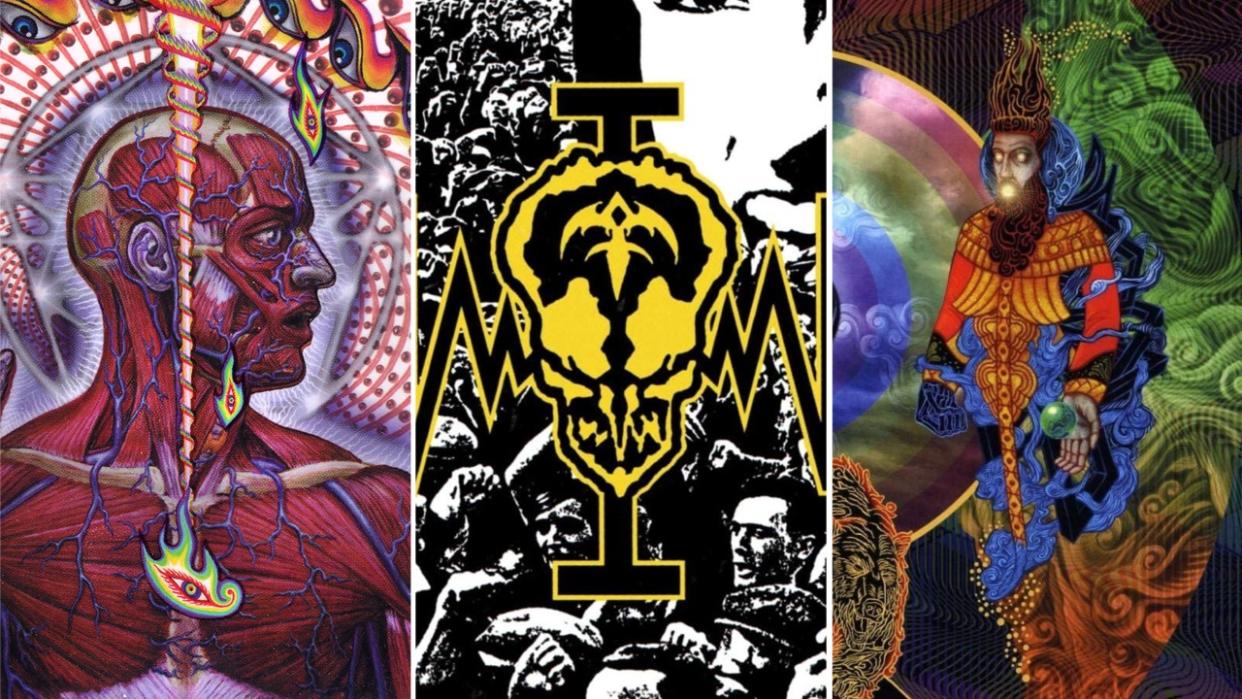A beginner’s guide to prog metal in 5 essential albums

Back at the dawn of history – well, the 1970s – prog and metal were distant cousins. Prog OGs such as King Crimson and Rush fused heavy riffs with dazzling musicianship and boffin-level lyrics, while metal forefathers such as Black Sabbath made the occasional incursion into prog territory (check out The Writ from 1975’s Sabotage album). But ultimately, they were two separate and distinct branches of the same family tree.
All that started to change in the 1980s, when mavericks such as Voivod., Fates Warning and Queensryche began splicing together these two musical forms. This new hybrid genre, eventually dubbed prog metal, grew in popularity through the 1990s and into the 2000s. Today it’s become one of the most vibrant and forward-looking scenes around, its tentacles in everything from Sleep Token to Polyphia.
But if you’re new to the genre, where do you start? Luckily, we're here with the five essential albums to help you penetrate this most impenetrable of genres. From 80s landmarks to modern day classics, this is the beginner’s guide to prog metal in five albums.

Queensryche – Operation: Mindcrime
With Queensry?che having escaped from the NWOBHM influences of their early recordings, Operation: Mindcrime was a early prog-metal zenith. Arguably metal’s first ‘headphones album’, it had a cinematic approach, with sound effects and dialogue enhancing a bonkers plot involving political revolution. Far less convoluted than it may sound, songs such as the dynamic Revolution Calling and the fist-pumping Eyes Of A Stranger helped define prog metal.
Dream Theatre – Images & Words
Dream Theater had to overcome a number of hurdles in order to create their second album, and their masterpiece. But with new vocalist James LaBrie safely in the fold, the prog metal pioneers were out to prove a point. And they did. Their second album combined the band’s ferocious musicianship with a canny knack for a song – albeit usually a very long, complicated one – the epic Pull Me Under being a case in point. Images And Words did far more than just enable Dream Theater to let in a vital chink of daylight. In fact its start-to-finish excellence served to open up a skylight to the cosmos.
Opeth – Blackwater Park (2001)
A new millennium brought a new sense of urgency to Opeth’s bold musical efforts. Blackwater Park was not just a self-evident career peak from a young band with the wind in their sails for the first time, it also had a profound impact on the entire world of heavy music, as lengthy, elaborate epics like The Leper Affinity and The Drapery Falls reintroduced progressive ideals and creative bravery to the metal world, while acoustic reveries like Harvest showcased a desire to move beyond it. Full of gorgeous melodies but still thunderously heavy, Opeth’s breakthrough album is widely and rightly revered as both a classic and a progressive metal benchmark.
Tool – Lateralus (2000)
Not just prog metal – Lateralus is one of the greatest records of any genre full stop. A genuinely faultless near 80-minute-long piece of music that still sounds like it’s been created by some kind of higher power, more than 20 after it was dropped on an unsuspecting world. From the second that The Grudge kicks into gear, it's hard to fathom where to start with high points, let alone entertain the idea that Lateralus drops anywhere below perfect at any point, but the swaying ocean of the title track or the measured post-prog metal machinations of Parabol and Parabola would be two moments that immediately spring to mind. A landmark band's landmark release.
Mastodon – Crack The Skye (2009)
If any album represents Peak Mastodon in terms of musical and lyrical complexity, it’s Crack The Skye. A metaphysical narrative based around mad Russian mystic Rasputin, astral travel and allegorical tributes to drummer Brann Dailor’s late sister is matched by a set of songs that took the band deep into progressive metal waters. Pulling out individual songs is a pointless exercise, given that Crack the Skye works best as one singular piece. But if you want an idea of why this record is considered such a landmark then heading straight for the magnificent, 13-minute The Last Baron should give you some idea. The fact the band somehow managed to bury such high-falutin' concepts amidst their (then) most accessible record to date remains testament to just how insanely talented they are as songwriters.
